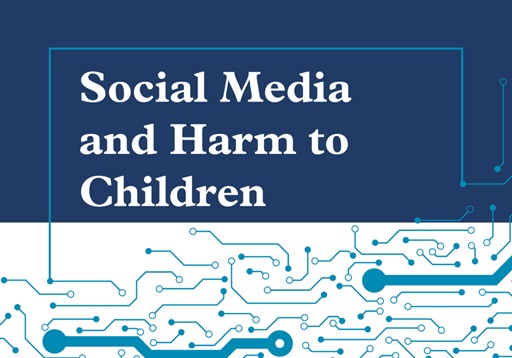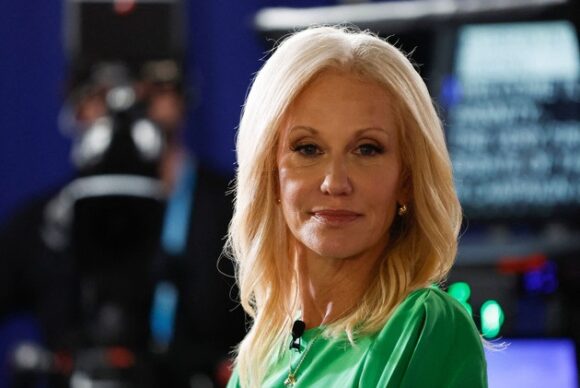 From the movie “The Apprentice” starring Jeremy Strong as Roy Cohn and Sebastian Stan as Donald Trump. Credit…Scythia Films.
From the movie “The Apprentice” starring Jeremy Strong as Roy Cohn and Sebastian Stan as Donald Trump. Credit…Scythia Films.
Dear Commons Community,
The New York Times columnist, Michelle Goldberg, had a piece yesterday entitled, The Chilling Reason You May Never See the New Trump Movie. It is all about a film called The Apprentice and focuses on the relationship between Roy Cohn and Donald Trump. Essentially the movie chronicles how Trump first learned from and later surpassed his brutal, Machiavellian fixer. Here is an excerpt:
“This week I finally got to see “The Apprentice,” an absorbing, disturbing movie about the relationship between the red-baiting mob lawyer Roy Cohn and a young Donald Trump. The film, which was received with an extended standing ovation and mostly appreciative reviews when it premiered at Cannes last month, is a classic story of a mentor and his protégé, chronicling how Trump first learned from and later surpassed his brutal, Machiavellian fixer.
Its performances are extraordinary. The “Succession” star Jeremy Strong captures both Cohn’s reptilian menace and, eventually, his pathos, as he’s wasted by AIDS but, closeted to the end, refuses to admit it. Just as impressive is Sebastian Stan, who makes Trump legible as a human being rather than the grotesque hyperobject we all know today.
It’s not a sympathetic portrayal, exactly; this is, after all, a movie that depicts Trump raping his first wife, Ivana. (The scene is based on a claim Ivana Trump made in a divorce deposition but later recanted, saying she felt “violated” but didn’t want her “words to be interpreted in a literal or criminal sense.”)
But “The Apprentice” also gives you a sense of the audacious glamour Trump projected before he became a caricature, and it makes his decision to pursue Manhattan’s Commodore Hotel in the 1970s, when Midtown was a sleazy wasteland, seem visionary. It offers a fresh way of understanding how Trump — under the tutelage of Cohn, who once served as chief counsel to Joseph McCarthy — evolved from an almost charming Queens striver into the lawless predator now bestriding American politics. I wish you could see it.
Unfortunately, you may not get a chance to see it anytime soon, at least in the United States. Distributors have bought the rights to “The Apprentice” in Canada, Britain, France, Germany, Japan and many other countries. But the filmmakers have yet to secure a deal to release it here, either in theaters or on streaming services.
Negotiations are ongoing, and domestic distribution could still come together. Yet the possibility that American audiences won’t be able to see “The Apprentice” isn’t just frustrating. It’s frightening, because it suggests that Trump and his supporters have already intimidated some media companies, which seem to be pre-emptively capitulating to him.”
The entire column is below. Important reading!
Tony
———————————————————————————————–
The New York Times
The Chilling Reason You May Never See the New Trump Movie
June 14, 2024
By Michelle Goldberg
Opinion Columnist
This week I finally got to see “The Apprentice,” an absorbing, disturbing movie about the relationship between the red-baiting mob lawyer Roy Cohn and a young Donald Trump. The film, which was received with an extended standing ovation and mostly appreciative reviews when it premiered at Cannes last month, is a classic story of a mentor and his protégé, chronicling how Trump first learned from and later surpassed his brutal, Machiavellian fixer.
Its performances are extraordinary. The “Succession” star Jeremy Strong captures both Cohn’s reptilian menace and, eventually, his pathos, as he’s wasted by AIDS but, closeted to the end, refuses to admit it. Just as impressive is Sebastian Stan, who makes Trump legible as a human being rather than the grotesque hyperobject we all know today.
It’s not a sympathetic portrayal, exactly; this is, after all, a movie that depicts Trump raping his first wife, Ivana. (The scene is based on a claim Ivana Trump made in a divorce deposition but later recanted, saying she felt “violated” but didn’t want her “words to be interpreted in a literal or criminal sense.”)
But “The Apprentice” also gives you a sense of the audacious glamour Trump projected before he became a caricature, and it makes his decision to pursue Manhattan’s Commodore Hotel in the 1970s, when Midtown was a sleazy wasteland, seem visionary. It offers a fresh way of understanding how Trump — under the tutelage of Cohn, who once served as chief counsel to Joseph McCarthy — evolved from an almost charming Queens striver into the lawless predator now bestriding American politics. I wish you could see it.
Unfortunately, you may not get a chance to anytime soon, at least in the United States. Distributors have bought the rights to “The Apprentice” in Canada, Britain, France, Germany, Japan and many other countries. But the filmmakers have yet to secure a deal to release it here, either in theaters or on streaming services.
Negotiations are ongoing, and domestic distribution could still come together. Yet the possibility that American audiences won’t be able to see “The Apprentice” isn’t just frustrating. It’s frightening, because it suggests that Trump and his supporters have already intimidated some media companies, which seem to be pre-emptively capitulating to him.
Some established distributors might simply be reluctant to take on “The Apprentice” because they think political films are money losers; as The Hollywood Reporter pointed out, Adam McKay’s 2018 Dick Cheney biopic, “Vice,” was considered a “major flop.” But “The Apprentice” is a far buzzier film than “Vice,” and it appears from industry reporting that the movie industry is less worried about finding an audience than about poking the MAGA bear.
As Puck’s Matthew Belloni wrote after talking to potential buyers, “several that really liked the film are still out on ‘The Apprentice,’ in part because of the politics of the moment — which is to say fear of the politics of the moment.” Emanuel Nuñez, president of the production company Kinematics, one of the film’s investors, told me, “Trump attacked the film and, unfortunately, it appears that Hollywood right now doesn’t have the stomach to release this film and take him on.”
The fear seems to be twofold. Few want to end up in the MAGA movement’s cross hairs the way Bud Light and Disney did. And as one distribution executive told Variety, any company that wants to be sold or to merge with or buy another company would be hesitant to touch “The Apprentice” because of the possibility that, should Trump be re-elected, his “regulators will be punitive.”
After all, when Trump was president, his Department of Justice tried to block AT&T’s acquisition of Time Warner, the company that owned CNN. As The New Yorker’s Jane Mayer reported, the government’s opposition to the deal was widely seen as retaliation for CNN coverage that displeased Trump.
In a second Trump term, the Department of Justice is expected to be far more aggressive in persecuting Trump’s perceived enemies. Kash Patel, a former Trump administration official who has been floated as a possible acting attorney general in a Trump restoration, boasted to Steve Bannon of plans to target journalists for rejecting Trump’s lies about a stolen 2020 election: “We’re going to come after you, whether it’s criminally or civilly,” Patel said.
They could go after anyone involved with “The Apprentice” in the same way. In a cease-and-desist letter to the filmmakers, a lawyer for Trump claimed, absurdly, that the movie is “direct foreign interference in America’s elections,” citing the fact that its director, Ali Abbasi, is Iranian Danish and that the movie received funding from Denmark, Ireland and Canada.
“If you do not immediately cease all publication and marketing of the movie, President Trump will pursue every appropriate legal means to hold you accountable for this gross violation of President Trump and the American people’s rights,” Trump’s lawyer wrote. Should he become president again, he’ll have greatly expanded options for pursuing this vendetta.
It’s common to read about movies that are shown in most of the world but not released in, say, Russia or, more often, China. Should “The Apprentice” end up widely available globally but not, for political reasons, in the United States, it will be a sign of democratic decay, as well as an augur of greater self-censorship to come. After all, if anxiety about enraging Trump is already shaping what you can and cannot watch, it’s probably bound to get even worse if he actually returns to power.
In 2017, when he was frustrated that his attorney general, Jeff Sessions, wasn’t protecting him from the investigation into his Russia ties, Trump exclaimed, “Where’s my Roy Cohn?” The uncertain fate of “The Apprentice” demonstrates that he no longer needs to replace the man, because he’s got a whole movement instead.












